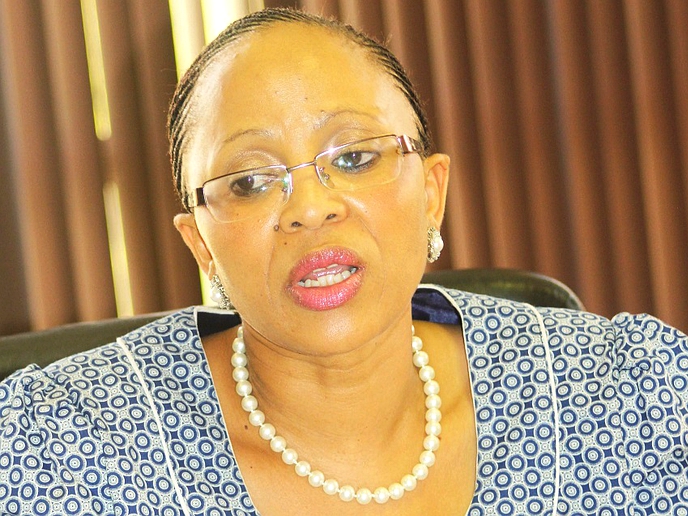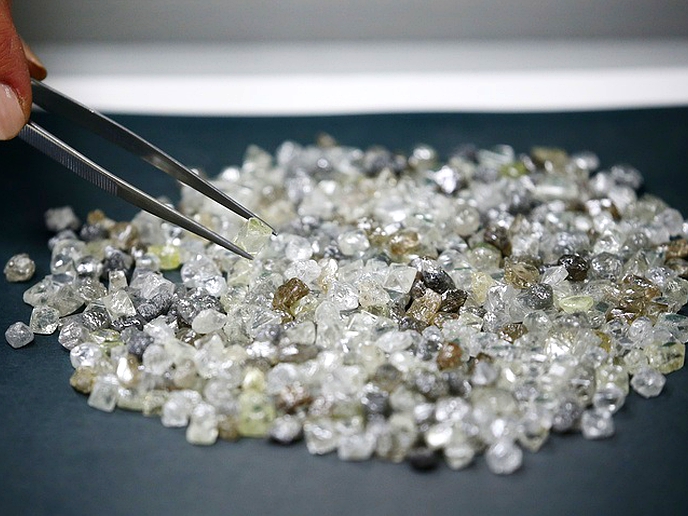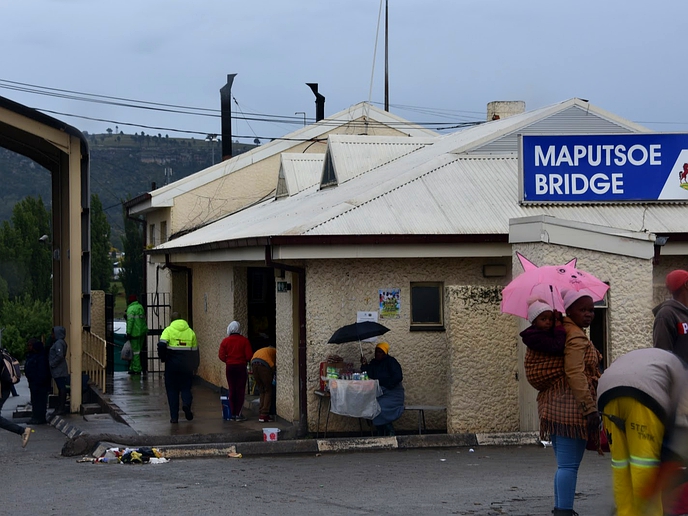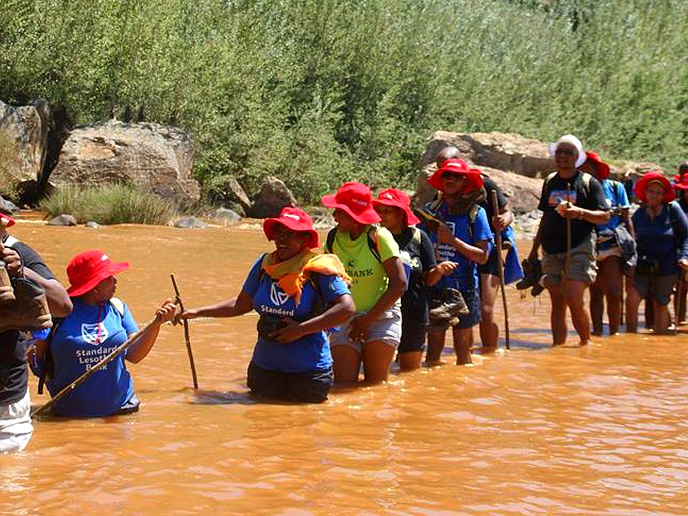REPRESENTATIVES of scores of former miners in Lesotho are calling for the immediate release of compensations for miners who contracted Tuberculosis (TB) and Silicosis while working in the South African gold mines.
business
Dec. 8, 2020
NEO SENOKO
3 min read
Ex miners cry foul over delayed compensations
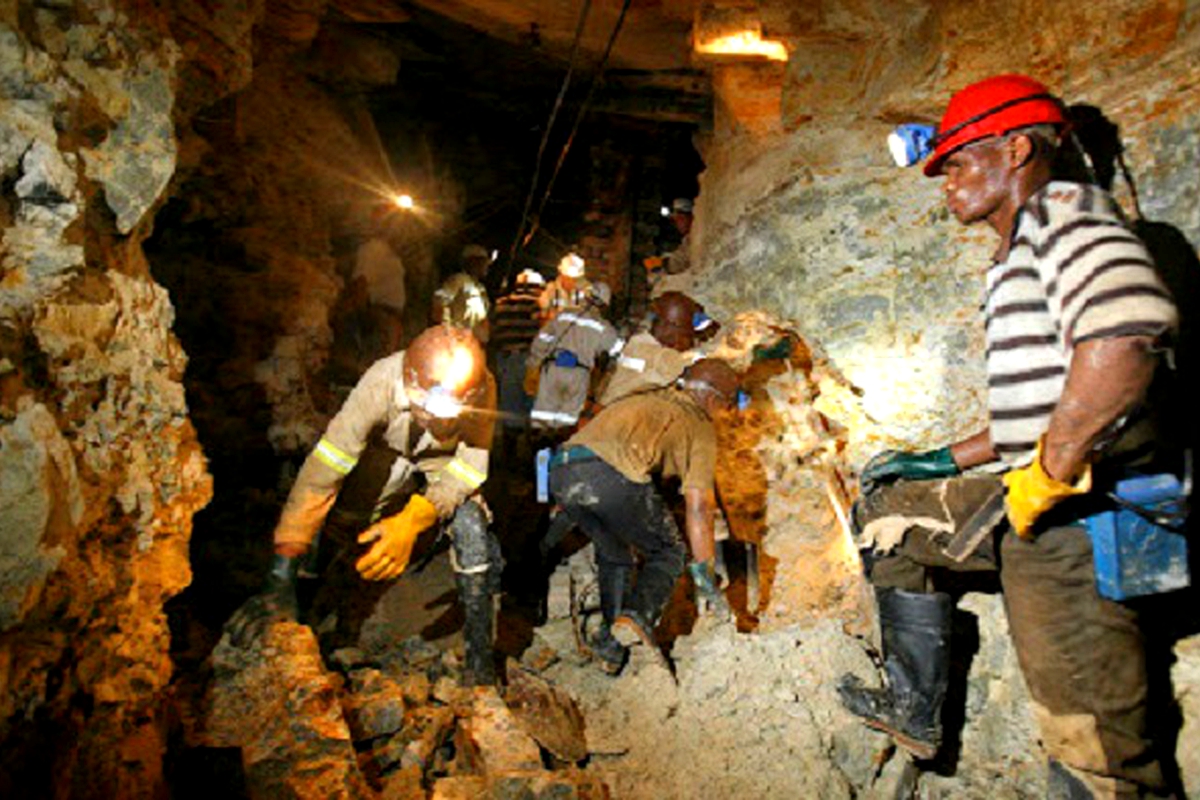
Miners in a South African gold mine
The representatives want the payment processes to be sped up before all the ex-miners may succumb to the two diseases.
At a minimum, beneficiaries will take home around M80 000 per person, depending on the degree of their ailment.
However, not all ex-miners are eligible for compensation.
The representatives’ team is made up of personnel from the Catholic Commission for Justice and Peace, Ex Miners Association Lesotho and Mineworkers Development Agency.
They are further calling for the Lesotho government to start a robust engagement with its South African counterpart to ensure smooth and prompt payments of ex miners’ compensations through legal and institutional reforms where needed.
This comes after a class action lawsuit on behalf of the former miners against 32 gold mining companies was certified by the South African High Court in 2016.
Consequently, a settlement was reached on May 3, 2018, after three years of extensive negotiations between the companies and the claimants’ attorneys.
On July 26 2019, the South Gauteng High Court approved the historic M5 billion settlement agreement, but with only six of the 32 gold mining companies including the African Rainbow Minerals, Anglo American South Africa, AngloGold Ashanti, Goldfields, Harmony Gold and Sibanye-Stillwater.
The associations revealed that only these six gold mining companies agreed to settle out of court. The other 26 companies refused to enter the out of court settlement and are prepared to proceed with the trial.
That means, it is only the ex-miners who worked at the six gold mines and contracted the two diseases that are eligible for compensation.
The court also approved the setting up of the Tshiamiso Trust to facilitate payment by the six companies to the affected miners.
Based in South Africa, the trust is envisaged to function in parallel with existing statutory compensation regimes.
But the ex-miners’ representatives feel the Tshiamiso Trust is dragging its feet towards timely disbursement of compensations.
“We strongly appeal to Tshiamiso Trust to speed up the process of paying the ex-miners compensations before they all die. We advise and strongly so, that Tshiamiso Trust should open offices or agencies here in Lesotho where people can make their claims,” said the Catholic Commission for Justice and Peace representative Booi Mohapi, during a media briefing on Monday.
For 120 years, mining companies and the South African government have failed to make mines safe from harmful conditions that cause Silicosis and Tuberculosis.
Today, 500 000 former gold miners in South Africa, Mozambique, Swaziland, Botswana, Malawi and Lesotho are dying from the two diseases.
“The trust should start by processing and paying all those who were registered for the class action court case since 2004 and which was settled in 2018. It should also pay all eligible widows who have certificates now.
Enjoy our daily newsletter from today
Access exclusive newsletters, along with previews of new media releases.
“We also call on Basotho, especially the affected ex-miners to be on the alert and keep all their employment and medical records safe. Ex-miners should also visit occupational health centres for medical screening in order to ascertain whether or not they are suffering from the silicosis so that they can be ready for compensation,” Mohapi further showed.
In a move to create awareness and sensitise all potential beneficiaries towards receiving compensations, the three associations, together with the Leadership Development Trust came together to launch the Justice for Miners-Lesotho Chapter to coordinate and lead the campaign for raising awareness amongst the affected.
The launch comes after the associations joined the SADC regional civil society on November 18 in Johannesburg.
The Justice for Miners-Lesotho Chapter is a loose coalition of stakeholders in the justice for the miners.
Thousands of Basotho men have been part of millions of southern African men who did not only built the South African economy but also paid a huge price while digging gold underground by contracting TB and Silicosis.
Thereafter, they were forced to return home empty handedly to die. Instead of contributing sustainably to the economy of Lesotho, they become a huge burden not only to the country but also to their families who have to take care of them, walk them to the health centres and provide for all their needs while they remain helpless, waiting for their subsequent deaths.
Tailored for you



